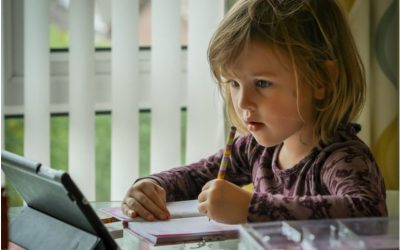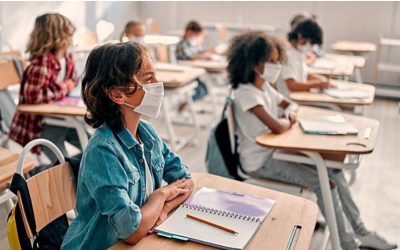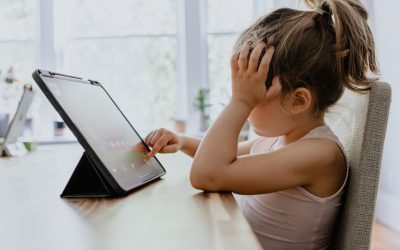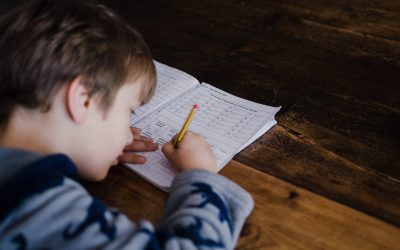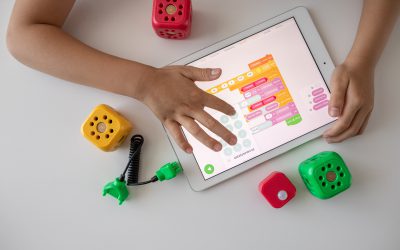Corona: didn’t go to school, did learn a lot
10 Apr 2020 | Parents, Professionals
In this blog, Anders Schinkel reflects on the lessons we can learn from this Corona crisis. How can we make sure that even though schools are closed, we still learn a lot from what is happening now? In addition to a life experience that makes a deep impression, the current situation also provides material for meaningful learning about biology, cultural differences, civics and citizenship, economics and ecology, and how we can and must work towards a future in which freedom, above all, is a condition for responsibility.
05-03-2020

In order to control the spread of the Coronavirus, the Dutch government closed schools, and subsequently decided to cancel the final tests in group 8 of primary school, as well as the national exams in secondary education. Judith Conijn and Melanie Ehren previously reflected on the consequences of dropping the final test for, among other things, the school advice, the quality assessment of schools, and determining the level of pupils across various subjects. Here I want to talk about something completely different, namely, what children (both in primary and secondary education) can learn now that they can’t go to school ‘as usual’.
Just so we’re clear: I’m not going to advocate for some kind of educational opportunism. There are people who see every crisis as an opportunity to enrich themselves, such as the flow traders late night TV host Arjen Lubach talked about last Sunday, who use the plummeting stock markets to make a profit (see here: https://www.youtube.com/watch?v=i8F9Jl15L-A). Or the people who have a supply of surgical masks lying around and offer them for sale at exorbitant prices – or even those just pretending to have surgical masks in stock. This kind of practice is immoral and distasteful.
Nor is it true that you should always draw a lesson from everything that happens to you: you don’t always have to ‘get something out of it’. If you work in an intensive care unit now, or if there is a close relative of yours on an intensive care ward, you wouldn’t think that way – and quite rightly, too.
Life experience
But the fact is that we are currently going through something that has no precedent in recent Dutch history. Since the Second World War, public life has never been shut down as much as it is now in order to try to control the spread of the Coronavirus. This means that all children and young people who would normally be going to school will have lasting memories of this crisis. Although they are not in school at the moment, they may gain important life experience.
Suddenly we notice – we experience at first hand – that what we consider ‘normal’ is not self-evident. Children always have to go to school, that doesn’t stop for anything – but it does now. I took it for granted as a teenager: if we felt like it, we’d go into town after school with a bunch of friends – but now that’s simply not possible. Perhaps you didn’t always feel like visiting your grandma or grandpa at the nursing home, but now you can’t (and you may be sorry you didn’t go earlier). Our normal life and society turn out to be more fragile, more vulnerable than they seemed. For a moment it becomes visible that the control we think we have over ‘nature’ and our lives is partly an illusion. And certainly slightly older children, like adults, will feel that a kind of shadow hangs over everything – no matter how brightly the sun is shining at the moment. Let’s be honest: death – or the possibility of death – is just a little closer than normal. Experiencing something like that can change your outlook on life forever.
Education for life: learning meaningful lessons from the Corona crisis
You don’t ‘learn’ something like that in school. Yet the school can support this kind of life experience, and broaden and deepen it with knowledge and understanding. It has often been said that education should be about real life. Without even exaggerating, the Corona crisis is real life for many of us right now – everything we think, feel and do is determined or at least touched by it. It would be very unfortunate if the education system were to ignore this and only maintain the ‘normal’ lessons (now offered online).
For even though schools are closed, teaching continues as far as possible. Teachers can therefore help students to understand the current situation; and this need not come at the expense of the normal curriculum – on the contrary, ordinary teaching can become more meaningful by making the connection with the Corona crisis.
A few examples:
- Biology lessons: seldom will biology teaching about viruses and/or the respiratory system have been as relevant and interesting to pupils as it is today. The Coronavirus provides an urgent opportunity to learn about such issues; and conversely, students can be facilitated in debunking the myths circulating about the virus.
- Civics and citizenship education: the crisis can also teach us a lot about our society: about our global economic system, economic and ecological interdependencies and vulnerabilities, but also about values and culture: why does the Dutch government not opt for measures as strict as the Italian, Spanish or French measures, and not for invasive monitoring of citizens (e.g. phone tracking), such as China, Taiwan and other countries? There are a lot of reasons for this: the seriousness of the epidemic in a country, demographic factors, medical infrastructure – but also cultural factors, such as the place of older people in society and the relationship between citizen and state (e.g. the degree of trust citizens have in the state and vice versa, and the extent to which the state commands the authority of the population). And what are the implications of such measures for the system of democratic checks and balances? Other important questions are: How is it that governments, even within the EU, have scarcely been able to come to a common approach to the virus? What does that say about the EU and its future prospects? And how should we deal with value conflicts, such as between freedom and public health? The social sciences, which are usually considered ‘soft’, can suddenly feel a lot ‘harder’.
- Economy and ecology: a third example, already touched on above: the crisis mercilessly exposes where our priorities in economics and ecology have lain for decades (no, centuries). From China to Western Europe, the air above our cities is clearing up now that traffic has largely come to a standstill and economic activity has fallen sharply. Seeing how clean it can be now shows us how dirty it normally is. At the same time, we see in the Netherlands that a company like KLM, an exponent of an enormously polluting industry, even after announcing a few thousand redundancies, is promised substantial government support. (See also the article by sociologist Willem Schinkel in NRC: https://www.nrc.nl/nieuws/2020/03/18/waarom-moet-de-gemeenschap-de-markt-redden-a3994094). We also see that, while our governments have been struggling for decades to find money to make our economies more sustainable and respond to the growing ecological crisis – see, for example, the IPCC report on climate change (at: https://www.ipcc.ch/reports/), the IPBES report on biodiversity (at: https://ipbes.net/) – tens of billions can now suddenly be found to cushion the economic blow of the Corona crisis.
Open future: the need for more international cooperation
And the big question – not least for young people – is of course: What will the future look like ‘post Corona’, and how will it be changed by the crisis and the steps governments are taking now to deal with it? Historian Yuval Noah Harari, best known for his books Sapiens and Homo deus, addressed this question in an article in the Financial Times: https://www.ft.com/content/19d90308-6858-11ea-a3c9-1fe6fedcca75. Will the crisis lead to empowered citizenship nationally and internationally, or rather to permanent restrictions on people’s freedom? To international cooperation, or to ‘every man for himself’ and increasing inequality? Larger and historically significant steps are often taken in times of crisis. But crises are also moments when it becomes apparent that different futures are open to us. So what ‘we’ do now matters. But I can imagine that you’ll wonder, especially if you’re a young person without even the right to vote: do I matter too, do my choices make a difference?
History textbooks have long pretended that history is made by (male) heroes; the other extreme would be to think about it as if it were some kind of natural process that ineavitably runs its course. Do individuals matter or not? Each of us perhaps vacillates between a decided ‘yes’ and a depressed ‘no’. But actually, we have to be careful not to misdirect the focus of the question: it doesn’t matter whether I matter; the only question is whether the world matters and whether the direction we collectively take matters – and once you’ve answered this question for yourself what’s important is not to wait until you’re pushed in the right direction, but to start moving.
Crises can help people – whether they are under 18 or over – to grow up: you learn that freedom is not the absence of responsibility, but the condition of responsibility. Who knows, maybe today’s young people will tell their children and grandchildren about these times: we couldn’t go to school, but we learned an awful lot.
See also information for:
Most recent blogs:
How LEARN! supports primary and secondary schools in mapping social-emotional functioning and well-being for the school scan of the National Education Program
Jun 28, 2021
Extra support, catch-up programmes, learning delays, these have now become common terms in...
Conference ‘Increasing educational opportunities in the wake of Covid-19’
Jun 21, 2021
Covid-19 has an enormous impact on education. This has led to an increased interest in how recent...
Educational opportunities in the wake of COVID-19: webinars now available on Youtube
Jun 17, 2021
On the 9th of June LEARN! and Educationlab organized an online conference about...
Homeschooling during the COVID-19 pandemic: Parental experiences, risk and resilience
Apr 1, 2021
Lockdown measures and school closures due to the COVID-19 pandemic meant that families with...
Catch-up and support programmes in primary and secondary education
Mar 1, 2021
The Ministry of Education, Culture and Science (OCW) provides funding in three application rounds...
Home education with adaptive practice software: gains instead of losses?
Jan 26, 2021
As schools all over Europe remain shuttered for the second time this winter because of the Covid...

